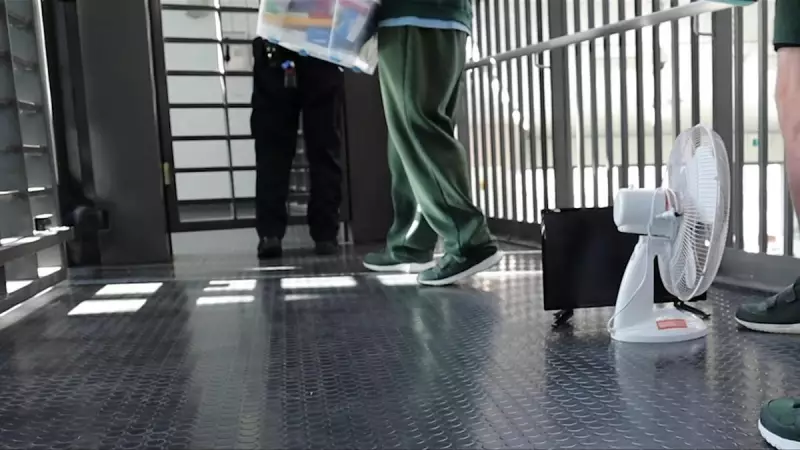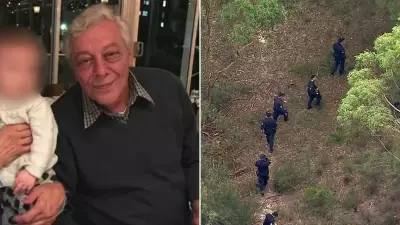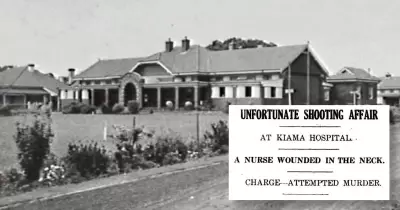
A disturbing trend is emerging in Western Australia's courtrooms, where violent criminals are receiving significantly reduced sentences due to what judges are describing as 'inhumane' and 'outrageous' conditions inside the state's prisons.
Attacker's Reduced Sentence Sparks Outrage
In a case that has highlighted this concerning pattern, 33-year-old Coen Dorizzi received just two-and-a-half years behind bars for a violent carjacking that left an 89-year-old man traumatised. Dorizzi dragged Armadale grandfather Ken Cook from his car and repeatedly pushed him to the ground in November 2024, all while the victim's terrified wife looked on helplessly.
"She couldn't help physically at all. And at my age, I was past going the full 10 rounds," Cook recounted, detailing injuries that included a bruised hip and sprained wrist. The emotional scars, however, run much deeper. "It's not something that disappears," he said of the psychological trauma.
Dorizzi had also attempted to steal another vehicle from a 70-year-old man moments before attacking Cook. Despite facing a maximum penalty of 20 years for his crimes, WA District Court Judge Gary Massey cited 'inhumane' conditions inside Hakea Prison as a contributing factor to the lenient sentence. With parole eligibility, Dorizzi could be free in just three months.
Judges Condemn 'Horrific' Prison Conditions
Judge Massey isn't alone in his criticism of Western Australia's correctional facilities. Other members of the judiciary have voiced similar concerns about the state's prison system.
In September, Judge Linda Black described Hakea Prison as "horrific" and "dangerously unstable" while sentencing drug smugglers. She specifically noted that prisoners are regularly locked in their cells for up to 27 hours at a time, creating volatile conditions that endanger both inmates and staff.
"The guards themselves find themselves at risk because of the inadequate facilities and basic human rights being met of many of the prisoners there," Black stated, while clarifying that her criticism wasn't directed at individual prison officers working under "dire and extraordinary circumstances."
The problems extend beyond Hakea. In November, Judge David MacLean commented on a reported cockroach infestation at Casuarina prison, calling the situation "inexcusable" and "shocking" in modern Australia.
"It seems to entirely miss the point of fostering any rehabilitative process," MacLean said, noting that addressing the pest problem would presumably be "a reasonably easy fix."
Government Response and Community Safety Concerns
The judges' remarks have drawn a mixed response from government officials. Premier Roger Cook openly disagreed with the judicial assessment of prison conditions.
"I don't accept their assessment of our prison conditions," Cook stated. "Our prisons are under pressure at the moment, because of the growing prison population, but the prisons are kept safe and the judges' responsibility is to keep our community safe."
Corrective Services Minister Paul Papalia emphasised judicial independence while acknowledging public expectations. "West Australians would expect convicted criminals to be hit with the full force of the law," Papalia said.
Meanwhile, Inspector for Custodial Services Eamon Ryan expressed no surprise at the judges' comments, confirming he's witnessed the concerning conditions firsthand. Prisoners are often locked in cells for 22-23 hours daily and fed through hatches in their doors, Ryan noted, leading to unhygienic conditions and pest infestations.
The situation is creating a perfect storm for reduced rehabilitation and increased reoffending. Ryan highlighted that the vast majority of prisoners on remand don't receive access to vital programs addressing addiction, offending behaviour, or mental health issues.
"If they don't get support for their addiction, their offending behavior, their mental health support, they're going to come out worse, and that's going to make the community a lot less safe than they want to be," Ryan warned.
Current data reveals the extent of the overcrowding problem, with 178 men and 14 women forced to sleep on mattresses or trundle beds on prison floors on a single Tuesday night. Fourteen of Western Australia's correctional facilities are operating at 98 percent capacity, exacerbating the challenging conditions that are now directly influencing sentencing outcomes.






